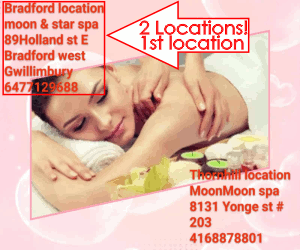


When running a mobile massage practice, several considerations come into play: business logistics, how to manage costs and profits, demands on your transportation and how to best manage your time.
But the first, and most important, consideration you put your attention on when working as a mobile massage therapist is safety.
Safety includes such well-established practices as screening out questionable clients and responding to inappropriate requests. And now, protocols related to coronavirus (COVID-19) are key to keeping yourself and your clients free of this disease.
Massage therapists need to consider several questions before booking that first mobile client: What would you do if a client acted inappropriately? What safety nets would you have in place to protect you from a risky situation? What protocols would you implement to ensure you are safe doing outcall massage services? What will you do differently to prevent the spread of coronavirus?
We spoke with massage therapists and representatives of national mobile massage therapy companies to bring you the latest information on running a happy, healthy mobile massage practice.
Messaging


Angela Lind, LMT, CLT
Angela Lind, LMT, CLT, owns Therapeutic Hands, serving Broward County, Florida. She started her mobile massage business in 2003 working part-time offering therapeutic massage in South Florida. She carries a can of pepper spray in her purse — but fortunately, she has not had to use it.
“I haven’t been in a dangerous situation with a client in the last 17 years I’ve been doing mobile massage,” said Lind. The reason has a lot to do with the safety protocols she has implemented to screen clients, she said. It all starts with her advertising and messaging on her website or other media outlets.
“The image a therapist projects in their advertising and social media is crucial to avoid being mistaken for someone offering extra services,” said Lind.
For example, a professional website that states your credentials and shows professional images of you. Photos that have even a hint of sensuality or seductiveness can be interpreted the wrong way, even if that is not your intention at all. You may also want to put a code of conduct statement on each page of your website or printed material that reinforces the verbiage of ethical, professional, non-sensual and nonsexual services. You could state “Inappropriate requests are not tolerated” and mention draping as a part of your protocol.
Lind also has this statement on her website: “My massage is strictly ethical and professional. Full draping is a must and not an option.”
Once your client has looked you up online, read about your services and is interested in booking with you, the next step is calling you to book a session. Prepare yourself to screen them on the call.
Screening
A phone screen allows you to ask the client questions about their health and gain an understanding of their expectations but also give you a feel for who they are.


Jeffrey Brown, LMT
Jeffrey Brown, LMT, owns Massage Therapy Miami, in Florida, and has been a practicing mobile massage therapist since 2009. He screens potential clients over the phone and has a trained ear for the verbal cues and probes clients make when they are testing the waters on services outside of massage.
“If they are looking for something other than a therapeutic massage, they are going to be asking questions that will sound alarm bells to me,” Brown said.
Many of these questions can be harmless, but the tone and suggestions that surround them can be telling of a client looking for something sexual. If a client mentions they do not want to be draped, asks what type of tips you work for, asks if you provide any special services, uses words like sexual or sensual or mentions their private parts, take any of this as a sign they more than likely are predatory.
Another red flag is if a potential client texts you a photo of themselves or asks for a picture of you. Personal questions or those about your relationship status should not be ignored as small talk. Questions about disrobing or if they mention they prefer to not be draped are red flags.
“I firmly and clearly tell the client that I will not give the massage with their intimate parts uncovered. That’s my policy and if they don’t respect that, the massage is terminated and they have to pay the session in full,” Lind said.
Sexual predators are one kind of threat to mobile massage therapists. There are also predators out there who may be looking to do harm. Brown has heard from female massage therapists being in compromising situations and urges newcomers to be aware of this if they choose to work mobile.
“Unfortunately, when a person is a predator they can sense vulnerability,” Brown said.
Safety
A set of safety nets is helpful for mobile massage therapists’ own peace of mind. Knowing someone other than you and the client knows where you are if something happens, or that you have a plan B if a massage session goes sideways, is essential.
Lind suggests starting with the client intake form and asking logistical questions that can ensure you are not walking into an unsafe location. An intake should be updated with questions related to coronavirus, like “have you been exposed to anyone diagnosed with COVID-19 in the past two weeks?”; do you have any symptoms of COVID-19?; and “have you been told to quarantine due to COVID-19?” Increasingly, massage therapists are being advised to take clients’ temperatures with a non-contact thermometer before beginning a session, and that both therapist and client should wear a face mask from beginning to end of every session.
Lind’s intake form makes it easier for her when she arrives and gives her a visual idea of the location, which eases her mind with new clients. She asks about parking, if it is safe to leave her vehicle, if there are stairs or elevators, if there is space for the table, and if it is a house or office. But as many questions as you may ask, you won’t truly know what you are walking into until you are there. Lind said she avoids table massages in offices, especially after hours.
“When the office is closed and there is no one else there, anything can happen,” Lind said.
Intuition can also be a valuable safety net. On one occasion, Lind arrived at a client’s home and the home was completely empty. There was not one piece of furniture and the only two people in the home were she and her male client. She felt uncomfortable about it and immediately asked the client questions about the house. He apologetically said he hadn’t moved in yet and his current home was filled with moving boxes and supplies. She excused herself to the bathroom and texted her family to tell them where she was and that if she didn’t contact them in 90 minutes to call the police. After a brief discussion, she felt comfortable enough to proceed with the massage. This example illustrates how every situation is different and how massage therapists need to follow their gut feeling, Lind said.


Kumi Taylor, LMT
Gun Barrel City, Texas, massage therapist Kumi Taylor, LMT, follows her gut and lets clients build trust with her in her studio before going to their home. “I have a client that I have been going to for years now,” she said. “The first several months he asked me to come to his home and I said no. Trust was built and then I went to his home with confidence.”
Taylor also collects the driver’s license numbers of her clients and lets her office know where she will be. “If I feel unsafe from a potential client, I will not book the appointment,” said Taylor, who runs her own massage practice, Kumi’s Massage Studio, within a spa.


LaShauna Moore, LMT
Massage therapist and Practical Acupuncturist LaShauna Moore, LMT, owns and operates Heavenly Massage, a mobile massage bus that serves the Detroit, Michigan, area. She parks her bus in front of clients’ homes and doesn’t ever go into their home, which gives her an additional buffer. She also uses her family as her safety net.
Before and after she completes a massage, she lets a family member know the complete address of where she is going and what time she should be finished. She also has her clients pay before services are rendered so if something does go sideways and the session is cut short she is paid in full.
“Safety is critical, and if something doesn’t feel right, don’t book the appointment,” said Moore.
Sanitation
National mobile massage, app-based businesses, including Matago, Soothe and Zeel, had all implemented new sanitation protocols related to mitigating the spread of coronavirus (COVID-19) by May.
Matago, which markets, bills clients, collects payments and otherwise lets its massage therapist clients run their business as they want to, including setting their own prices, encourages massage therapists to follow CDC and local government guidelines related to sanitation and safety, according to chief marketing officer Lori Thomas. Matago also suggests the use of masks, removing shoes at the client’s door, sanitizing the table in view of the client while setting up, having the client provide their own linens, and advising the client about such procedures in the chat feature in the Matago app prior to the session.
Soothe has implemented Soothe Safe, a new health and safety program.
“Before accepting client appointment requests, therapists on the Soothe Network take a ten-point digital course to learn more about CDC recommended guidelines and how to apply them to their massage therapy practice,” said Jeff Bishop, senior vice president of operations. Additionally, clients must view and sign off on Soothe Safe protocols designed to protect the massage therapist, including clearing a space for the therapist to set up their equipment so therapists minimize contact with the client’s personal belongings and taking a shower 20-30 minutes prior to appointments.
“After an appointment is complete, a Soothe Safe follow-up survey is emailed to therapists and clients to learn more about whether or not each party adhered to Soothe Safe protocols,” said Bishop. “For those that did not adhere, they are contacted by our Trust & Safety team to address the situation.”
Zeel has implemented Zeel Shield, a system of health, safety and hygiene guidelines. A press release provided by Zeel listed some of the guidelines: A thorough safety policy checklist for providers and customers; a daily wellness check for massage providers built into Zeel’s provider app; a safety policy based on state, local, federal and CDC guidelines, as well as recommendations from leading industry organizations; a COVID-19 task force consisting of professionals in the medical field and members of Zeel’s Trust & Safety team; and resources for clients and providers on service availability by state.
“In these unusual times, it is our goal to deliver much-needed wellness programs in the safest possible way,” said Samer Hamadeh, CEO and co-founder of Zeel.
Preparing for Mobile Massage
Although Florida has allowed massage practices to reopen, Brown said he doesn’t yet feel comfortable resuming practice, and isn’t yet sure when he will do so. When he does reopen, he plans to wear a face mask and require clients to, too. He will also use an intake form updated with questions related to coronavirus.
Such standards have been put forth by the Centers for Disease Control and Prevention (CDC) and the Federation of State Massage Therapy Boards (FSMTB), among others. For additional information on sanitizing a practice, see “Best Practices for Maintaining Safety & Sanitation in a Massage Practice.”
Taylor said she sanitizes all supplies before and after each session, and is taking greater time and care with hand-and-arm washing before and after each session. Broward County’s Lind said she things the best way to protect oneself and one’s clients is to wear a face shield or mask, wash hands before and after every massage, and disinfect equipment and supplies between clients with an EPA-registered-grade disinfectant.
“Mobile massage therapists should always carry and use their own bar soap and small towel,” said Lind. “It’s also helpful to screen clients before scheduling their appointments with a prescreening call and online health-intake forms.”
Mobile massage therapists are in a unique position to take massage directly to clients. That position comes with the added responsibility to keep oneself safe, secure and, especially now, adhere to high sanitization standards.
7 Safety Tips Recap
Being a mobile massage therapist can be a rewarding career choice. The extra effort you put in at the beginning to create the right messaging to clients and the safety protocols you put in place to screen them and keep yourself and clients safe will pay off. Here is a recap of the seven best tips for mobile massage therapists:
1. Have professional messaging on your website and print advertisements.
2. Use words like ethical and professional, and don’t be afraid to include a code of conduct that reinforces your services are ethical, professional and therapeutic.
3. Thoroughly phone screen clients and listen for cues that suggest inappropriate behavior or sexual innuendo.
4. Collect information to validate clients’ identity, like their driver’s license number, or use a third-party service to screen.
5. Create a safety net for yourself, including having someone in your circle know where you’ll be and what time you’ll be done, and the client’s name and phone number.
6. Follow your gut. If it doesn’t feel right, it probably isn’t right. Don’t be afraid to walk away from a massage. Your safety is worth it.
7. Employ recommendations from such entities as the CDC or FSMTB on sanitation protocols to combat the spread of coronavirus.
About the Author


Aiyana Fraley, LMT, is a freelance writer and health care professional with more than 18 years of experience in the massage field. She teaches yoga and offers sessions in massage, Reiki, sound healing and essential oils. Her articles for massagemag.com include “Advanced Massage Training Will Take Your Career to the Next Level — Just Ask These Massage Therapists” and “The Massage Therapist’s Guide to Assisted Stretching Techniques.”
Related Posts

























































































